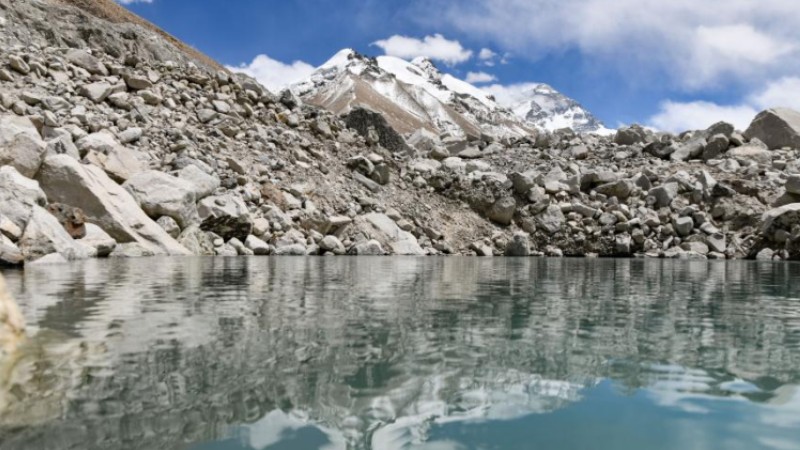Roundup: Criticism of U.S. Montana's new anti-climate change law growing daily
DENVER, the United States, May 18 (Xinhua) -- Pushback from citizens and environmental groups reached a crescendo this week after Montana's governor signed the most significant anti-climate change legislation in history, that bars the U.S. state from considering climate impacts in its analysis of large projects such as coal mines and power plants.
"Montana GOP just passed an aggressive law to thwart climate science -- several state lawmakers have close ties to the fossil fuel industry," Mother Jones, an award-winning progressive news magazine that covers environmental issues, reported Wednesday.
"Republican Gov. Greg Gianforte signed a GOP-sponsored bill banning agencies from considering climate impacts in major project analyses last week," reported Truthout, a nonprofit, independent news organization covering social justice issues since 2001.
"Montana is now home to one of the most extremist anti-climate, pro-fossil fuel and big developer laws in the country," Truthout said Wednesday.
On Tuesday, environmental group Ecowatch called the new law "extremely controversial" and noted that "House Bill 971 (HB 971) drew 1,000 comments during the most recent legislative session, 95 percent of which expressed opposition to the proposed bill," according to the Montana Free Press (MFP).
"Climate change is real, it matters, the climate is part of our environment, and we cannot ignore the changes that are occurring," said Anne Hedges with the Montana Environmental Information Center, who anticipates HB 971 will be the subject of a constitutional lawsuit, as MFP reported.
A 2022 survey by Conservation in the West showed that 67 percent of 416 registered Montana voters wanted "a renewable energy transition and said there was enough evidence of climate change to warrant action."
The measure was supported by the fossil fuel extraction lobbying groups including the Montana Petroleum Association and the Treasure State Resources Association, and Gianforte, whose political campaign was boosted by their contributions, MFP noted.
Several other Republican lawmakers worked for coal mining companies, as well as Ryan Zinke, the secretary of the interior under former President Donald Trump, who was a board member of the oil pipeline company QS Energy before he worked to open oil and gas development on federal lands.
The new law, signed into effect May 10, bans state regulators like the Montana Department of Environmental Quality from including climate impact and greenhouse gas emissions analyses when conducting comprehensive reviews of large projects, both inside and outside state borders, reported Ecowatch, one of many environmental groups that blasted the move.
Environmental and climate groups argued that the law hurt state efforts to tackle greenhouse gas emissions, causing Montana's snowpack to melt, that reduces much-needed water from streams in the summer and fall and contributes to more intense wildfires, as well as flooding.
Wildfires had devastated the West during the past decade, torching millions of acres of land and have been directly linked to extreme drought conditions exacerbated by climate change, with "99.9 percent of scientific literature agreeing that burning fossil fuels is accelerating global warming at an unprecedented rate," Mother Jones noted.
Some two dozen Republican states had passed or are considering similar anti-climate change laws, including Texas that "passed a law that bars the state from doing business with financial firms that have divested from fossil fuel companies for climate reasons, with state lawmakers now hoping to extend that ban to climate-conscious insurance companies," Mother Jones said.
Conservative states such as Tennessee and Louisiana have already passed similar laws, and Ohio Republican lawmakers are considering legislation that would force colleges to teach "both sides of the debate over whether human-made climate change is real," ignoring virtually unanimous acceptance of the fact in the scientific community, according to Mother Jones.
Photos
Related Stories
- New study finds over 1.6 mln excess deaths among Black Americans over 2 decades
- Other nations highlight dangers of gun violence for would-be travelers to U.S.: Yahoo News
- America's Coercive Diplomacy and Its Harm
- Dartmouth College demanded for accountability after Native American remains identified
- U.S., Mexican authorities expect surge in migrants headed towards U.S.
Copyright © 2023 People's Daily Online. All Rights Reserved.









